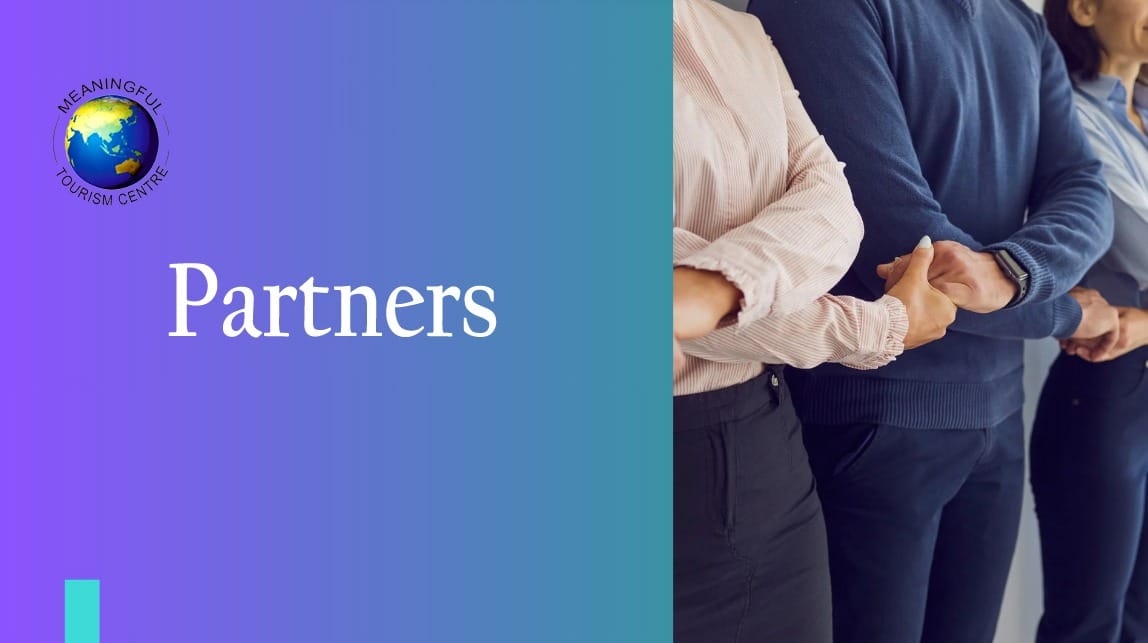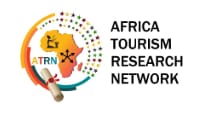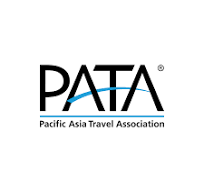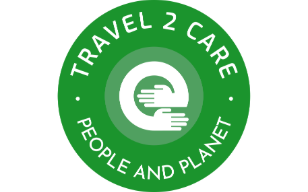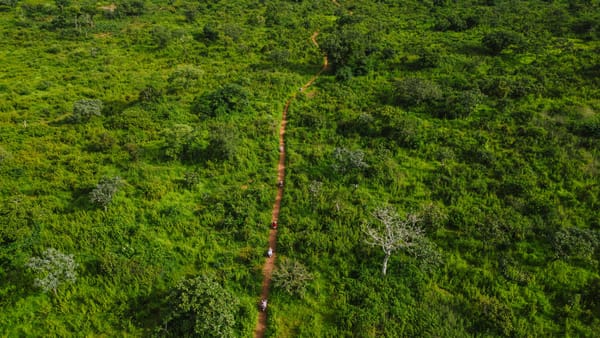Meaningful tourism: A panacea for the overlaps of tourism imbalance

Dear reader,
in this edition, your humble editor yields the stage to PaJohn Dadson, a colleague from The Business and Financial Times, the major business newspaper in Ghana, affectively known as B&FT.
Following the Webinar MEANINGFUL TOURISM ECONOMY – A VISION FOR A SUSTAINABLE FUTURE, organised by MTC in cooperation with the Institute of Tourism, the newspaper dedicated a whole page to one of the speakers in the webinar, Mr. Emmanuel Frimpong. He is the founding President of the African Tourism Research Network and Vice President of Africa Medical Tourism Council as well as the Certified trainer for the Meaningful Tourism Transformational Game Workshop.
PaJohn Dadson wrote among many other insightful comments: “There's no single ‘panacea’ for the complex issue of tourism gentrification or imbalance; but a combination of strategies, as proposed in the Meaningful Tourism approach, can help mitigate its negative impacts and foster a culture of sustainable and responsible tourism practices.
More than just a pleasant vacation, Meaningful Tourism is the way to go for global tourism to survive and thrive in a sustainable and profitable way. (…)
In Africa, the emergence of tourism’s significant economic impact and influence has seen phenomenal growth, particularly after a rebound in 2021 following the COVID-19 pandemic, generating significant foreign exchange earnings, creating jobs and stimulating local economies.
Meaningful Tourism, as a concept, shifts the focus from solely supply-side concerns (like sustainable practices) and restriction-based responsible tourism to a holistic approach that considers both demand and supply, and aims for positive outcomes for all. It prioritises the impact of tourism on all stakeholders, including guests, host communities, employees, companies, governments and the environment.
In the true sense of sustainable tourism, meaningful tourism plays a crucial role in the development of Africa by promoting cultural preservation which leads to economic benefits that contribute to opportunities for the growth and transformation of local communities. It emphasises responsible practices that minimise negative impacts while maximising positive ones for environment protection and cultural integrity. (…)
Considering the relatively untapped tourism sectors in Africa, such as religious pilgrimages, business and trade expos, sports events, gastronomy, adventure and wilderness experiences, wellness retreats, educational tours and humanitarian travel, embracing the meaningful approach to destination management is critical to achieving greater successes in tourism on the continent.”
The African colleague ends his text with the optimistic words: “Meaningful tourism, as a pathway to sustainability, calls for collaborative efforts. Hopefully, it will be well embraced so as to help sustain tourism’s contribution to job creation, social integration, preservation of natural and cultural heritage, biodiversity conservation, livelihoods and improved human well-being in Africa.”
As Confucius says in the first paragraph of the first chapter of his major book “The Analects”: “Is it not joy to put what you learned into practice, is it not joy to receive friends from afar?”
If you are now curious to learn more about Meaningful Tourism and Africa, rejoice! On June 19th, 2025, the ATRN and the MTC will together with the Institute of Tourism organise a webinar for this topic. More details in the following editions of the Meaningful Tourism Weekly.
Dear reader, this issue of Meaningful Tourism Weekly is a bit shorter than the normal editions based on unexpected health problems within our team. Next week we will be back with a full edition.
Until then, as always, all the best wishes from Prof. Dr. Wolfgang Georg Arlt and the entire Meaningful Tourism Weekly team!

Editor: Prof. Dr. Wolfgang Georg Arlt


Florian Caks is a certified trainer for the Meaningful Tourism Transformational Game Workshop. Based in Vienna, Florian is an internationally experienced legal expert, ESG manager, and sustainable tourism professional. He holds a doctorate in business law and combines academic rigor with hands-on expertise across public, private, and development sectors. Florian brings unique insights from his background in behavioral law, sustainable finance, and tourism education. His interdisciplinary approach bridges law, psychology, and sustainability to deliver impactful learning experiences. As the certified and exclusive MTC trainer for Austria and Namibia, he is dedicated to promoting meaningful and future-proof tourism strategies. Florian’s commitment to diversity, inclusion, and intercultural understanding shapes his engaging and purpose-driven teaching style. His workshop training is enriched by global experience and award-winning academic work. We are excited to welcome him to our community of meaningful tourism leaders.
Meaningful Tourism Weekly asked Florian about the situation of tourism in Austria & Namibia and the role the Meaningful Tourism paradigm can play to support the development in this country.
His answer:
Contrasts and similarities
Austria and Namibia are two countries that contrast greatly in so many aspects. Yet, in the context of tourism development, both are flagship destinations when it comes to sustainability and conservation, but also, both countries are confronted with their very own challenges.
Namibians in their vast and breathtakingly beautiful, sparsely populated country with stunning wildlife and landscapes, are world champions in dealing with even the most extreme environmental, social, and economic challenges. The necessity to safeguard their most precious natural and cultural assets for a thriving tourism economy is widely understood, sustainable living in harmony with nature seems omnipresent. Namibia has impressed internationally with innovative approaches like community-based conservation, but also by diversifying their economy by establishing their pioneering role in renewable energy production and other areas. Despite all the positive developments and efforts, challenges such as severe droughts followed by record rainfalls accompanied by floods, biodiversity loss through poaching, and severe social inequalities (to mention only a few), remain and call for mitigation and adaptation.
Austria, one of the richest countries in the world, with its picturesque mountains and lakes, and known for its prestigious historical monuments, is often perceived as an inconspicuous gem in the heart of Europe – and the Austrians are aware of what they have. Yet, Austrian tourism faces challenges stemming from climate change, endangering the for the country so particularly characteristic ski tourism. Overtourism puts the acceptance of the local population to the test, and a pronounced shortage of skilled workers makes it hard to keep the high service standard or to keep tourism businesses running at all.
Global challenges – different manifestations – A Meaningful Tourism approach
These examples show that challenges in global tourism always seem to be linked to the same key areas and the same key stakeholders, just with different manifestations and characteristics. That’s where the Meaningful Tourism Paradigm comes into play. It starts from the premise that sustainable tourism development requires a holistic approach which provides and measures benefits and satisfaction for all six key stakeholders of tourism and hospitality. These are: Travelers, host communities, employees in tourism and hospitality service providing companies, the companies themselves, governments on different levels, and the environment.
The negative results of climate change are certain to increase in severity in the coming decades. Whatever action is taken from now on is necessary to try to slow down and mitigate the process, however, equally important is the adaptation to these new realities and the world has reached tourism peak and needs a new paradigm on how to develop, measure and react to extreme weather events, rising sea levels and temperatures combined with protests by local communities, shortages of staff willing to work in the industry and decreases in biodiversity.
Meaningful Tourism is offering such a paradigm as a development of the concepts of sustainable and responsible tourism, based on a holistic approach and positive psychology and meant to provide a practical tool to implement measurable benefits and satisfaction for all stakeholders through alignment of interests instead of compromises, and this is done in the unique context of each destination or organisation.
Stakeholder engagement and KPIs as a common denominator
Through its focus on stakeholder engagement and KPI development, this approach can also help to bring the different perspectives on "sustainability" and "ESG" (Environmental, Social, and Governance) closer together. This is particularly relevant for EU countries like Austria, where companies are subject to mandatory or voluntary sustainability reporting, especially under the Corporate Sustainability Reporting Directive (CSRD). This can be either directly or indirectly as part of the value chain or in the context of financing.
Just as in the Meaningful Tourism approach, these frameworks have stakeholder engagement and KPIs at its core. Meaningful Tourism takes existing international (reporting) frameworks into account when it comes to KPI development. However, the just mentioned EU sustainability frameworks are under the threat of extinction even before they have come to life (see the “Omnibus” initiative) and this is happening under the title of "burden-reduction" and quite paradoxically for the alleged enhancement of "competitiveness".
Meaningful Tourism and access to funds
However, banks will always be asking companies about their sustainability performance from a perspective of credit risk – irrespective of a legal obligation to report. Similarly, with the aim of future-proofing tourism, the Meaningful Tourism Centre as a non-profit organisation based in the UK and in Nepal offers practical tools for destinations, companies and organisations to implement a Meaningful Tourism strategy helping to fight climate change as well as making sure its own economic survival in the coming decades, and thus also to support access to finance.
Trainers Around the World
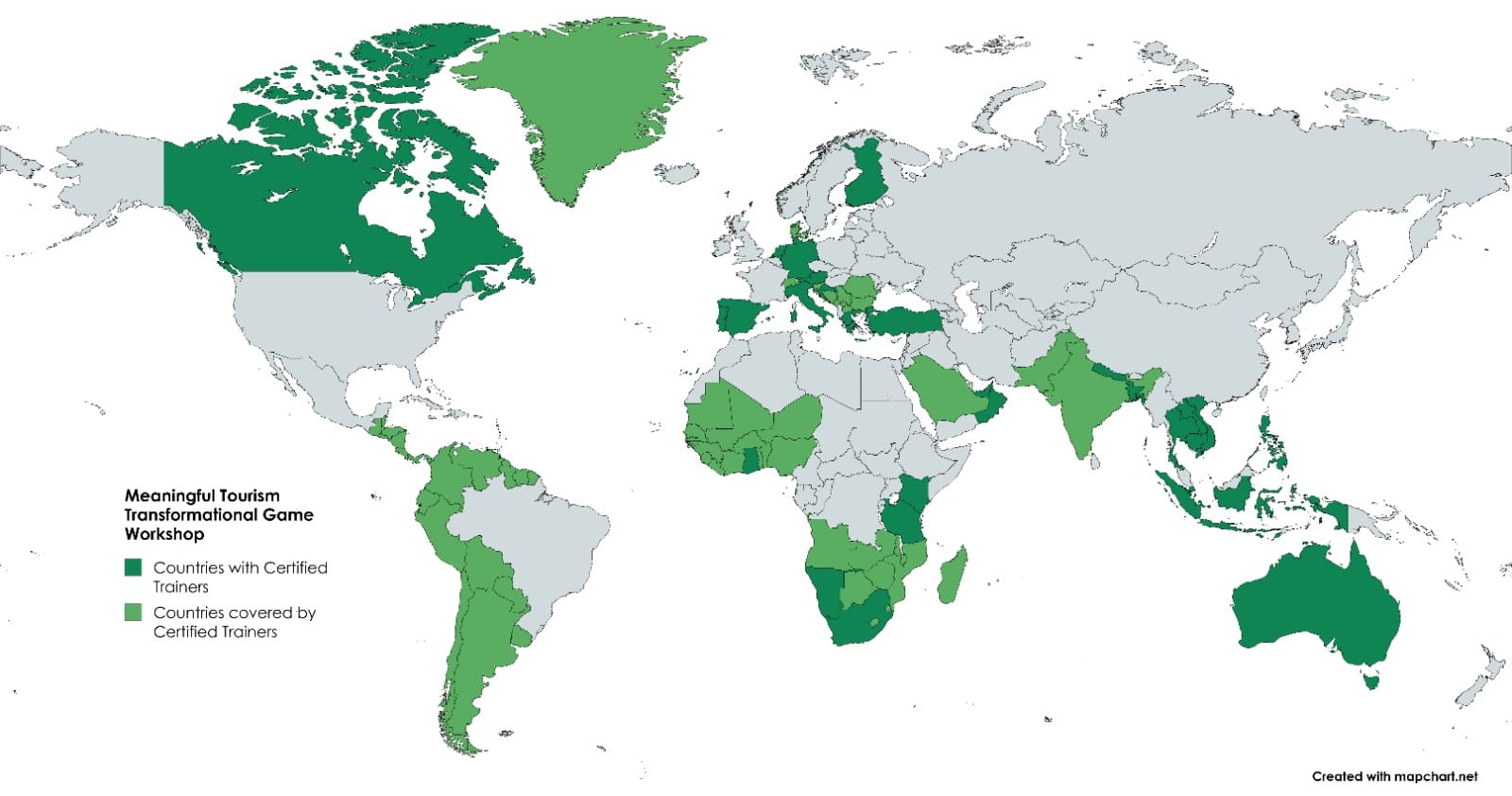
MTC is happy to invite more persons to become certified trainers and offering Meaningful Tourism Transformational Game Workshops in countries or regions not yet covered. If you have experience as a trainer and interest to support sustainable tourism, please contact us.

Asia Sustainable Travel (AST)
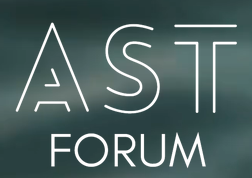
June 5th, 2025, 14–17 h, Hanoi, Vietnam
Hotel de Lagom
Asia Sustainable Travel (AST) is a media and intelligence company delivering agenda-setting sustainability and Asia-focused marketing solutions for travel and hospitality brands. Co-Founder Rhea Vitto Tabora is the Certified trainer of MTC for the Philippines.
The AST Forum will bring together a distinguished group of speakers and participants from Southeast Asia to discuss sustainable and meaningful travel and tourism in Asia.
Meaningful Tourism in Africa Webinar.
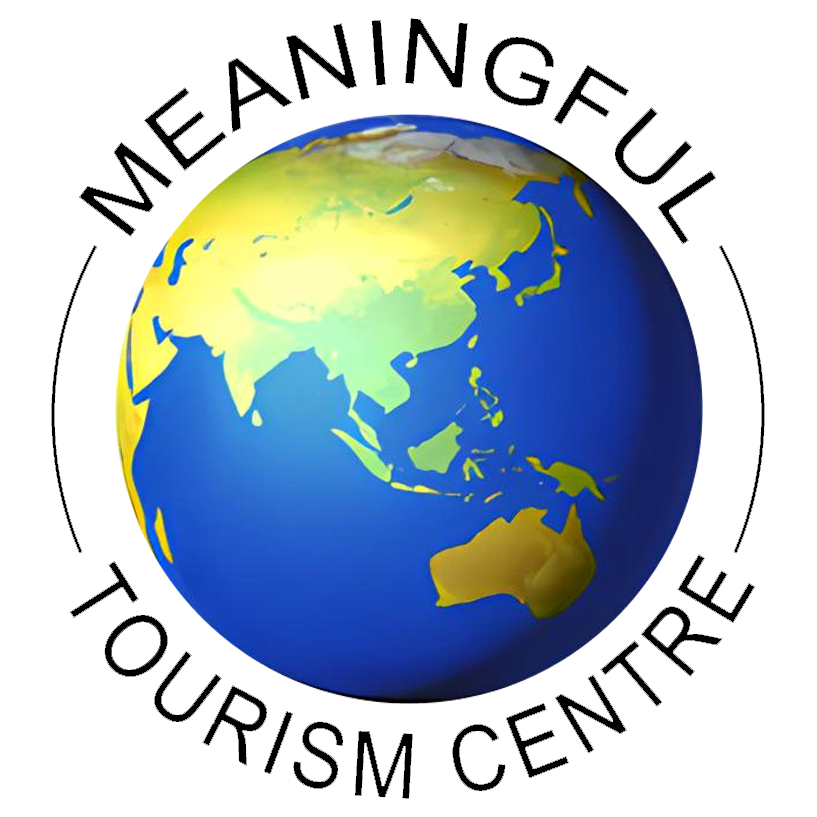
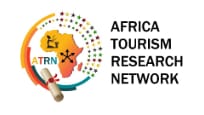
Webinar: Tourism Development in Africa
Date: June 19th, 2025 – JUNETEENTH
JUNETEENTH marks the day in 1865 when slavery officially ended in the United States. This webinar will honor that legacy by reflecting on tourism development in Africa—its achievements, challenges, and the path forward.
The Meaningful Tourism approach will be presented as a tool to help avoid mistakes and harm caused by unsustainable tourism in other parts of the world. Speakers will share insights and Best Practice Examples to guide meaningful progress.
Organized by the Meaningful Tourism Centre and the African Tourism Research Network, the webinar invites tourism professionals, researchers, and changemakers to join the conversation.
Meaningful Tourism Webinar in Collaboration with PATA
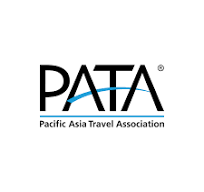
Webinar about Meaningful Tourism
July 8th, 3 p.m. Bangkok time
Details following soon
Meaningful Tourism Weekly is published every Thursday by the MTC Meaningful Tourism Centre (London and Kathmandu).
Each Meaningful Tourism Weekly includes the Meaningful Tourism Weekly Editorial, news about MTC activities, a Best Practice example, a portrait of a MTC-certified trainer, news about upcoming events and occasionally additional op-ed pieces provided by guest authors.
Furthermore, carefully selected news items including videos and podcasts with a link to the original source are added, sorted according to the six main stakeholders of tourism and hospitality, as defined by the Meaningful Tourism paradigm: Traveller/Guests, Host community, employees in tourism and hospitality service providers, service providing companies, governments and the environment.
Subscription to Meaningful Tourism Weekly is free, there are no advertisements. Names and other details of the subscribers are not shared with anybody.
Sponsorship options are available.
If you are interested in the work of the Meaningful Tourism Centre, providing trainings, market research, product adaptation, consulting services, conferences, strategy development and marketing, visit our website www.meaningfultourismcentre.org or contact us using info@meaningfultourismcentre.org.
